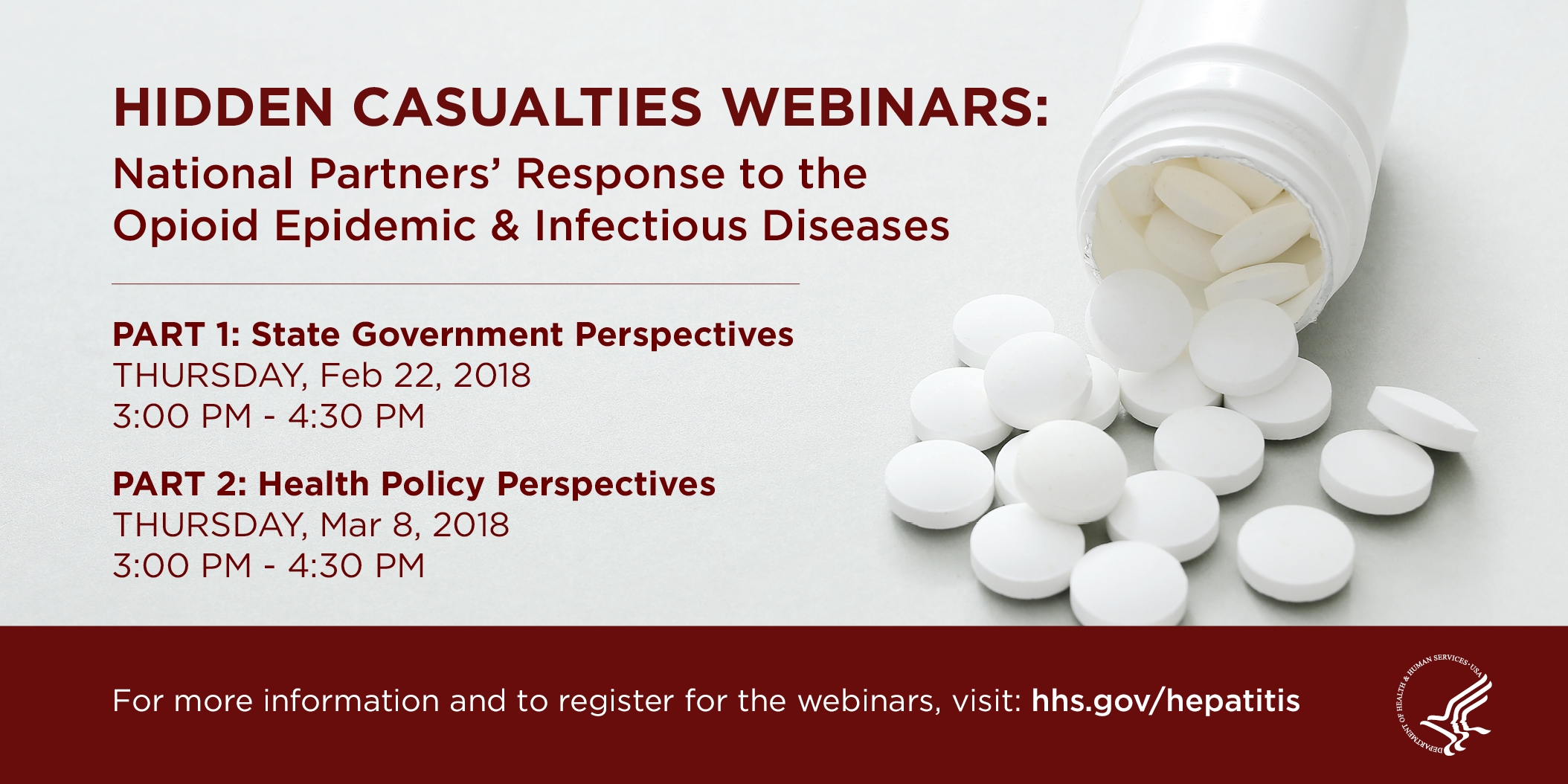Registration Now Open: Webinars Spotlight Local, State, & National Partners’ Responses to Infectious Disease Consequences of Opioid Epidemic
Topics
Cross-posted from U.S. Department of Health and Human Services
February 7, 2018

It is widely known that the opioid epidemic gripping the nation has led to alarming increases in opioid use disorders, injection drug use, and overdose deaths. What has not been well understood or adequately addressed is the reality that, as rates of injection drug use have risen, so too have the risks for and rates of infectious diseases such as hepatitis B, hepatitis C, HIV, and endocarditis. According to recent analysis from CDC, rates of opioid injection have increased and are driving increases in new hepatitis C infections which increased dramatically among younger Americans ages 18 – 29 and 30-39 (400% and 325%, respectively) from 2004 – 2014. Maternal hepatitis C infections also increased, exposing more infants to hepatitis C. These infectious diseases are life-threatening, contribute to rapidly rising health care costs, and add to the growing impact of the opioid epidemic in every state.
Fighting the opioid epidemic is a national priority at the highest levels of the Administration and President Trump has declared it a public health emergency. For all of these reasons, the federal government has mobilized to take action to address this threat. But to be the most effective, these intertwined epidemics require an integrated response.
In support of such a response, HHS has been working to draw attention to the need for a comprehensive, integrated response to the opioid epidemic in a number of ways. Last year, the Hidden Casualties: The Consequences of the Opioid Epidemic on the Spread of Infectious Disease event helped to frame the issues. Now, the HHS Office of HIV/AIDS and Infectious Disease Policy is hosting two webinars to continue to explore the relationship between the opioid epidemic and infectious diseases, particularly hepatitis B, hepatitis C, and HIV. The webinars will shine some light on the roles of various national, state, and local stakeholders.
Panelists will describe the use of existing federal guidance, policies, and resources that support their efforts–at the local, state, and national levels–to respond to the opioid epidemic and its infectious disease consequences. Each session will include discussion of the impact of the opioid epidemic on infectious diseases, burdens and challenges, innovative steps being taken to address the intertwined problems, and opportunities to further strengthen these efforts by both nonfederal as well as federal partners.
Additional information, including participating organizations and how to register, is as follows:
Part 1: State Government Perspectives (Register for the first webinar by clicking here.Exit Disclaimer)
Thursday, February 22, 2018
3:00 p.m. – 4:30 p.m. (EST)
Participating Organizations:
- Association of State and Territorial Health Officials (ASTHO)
- National Association of County and City Health Officials (NACCHO)
- National Governors Association (NGA)
- Substance Abuse and Mental Health Services Administration (SAMHSA)
- Office of the Assistant Secretary for Health
- Part 2: Health Policy Perspectives (Register for the second webinar by clicking here.Exit Disclaimer)
Thursday, March 8, 2018
3:00 p.m. – 4:30 p.m. (EST)
Participating Organizations:- Infectious Disease Society of America (IDSA)
- National Alliance of State and Territorial AIDS Directors (NASTAD)
- National Association of Community Health Centers (NACHC)
- National Viral Hepatitis Roundtable (NVHR)
- Centers for Disease Control and Prevention (CDC)
- Health Resources and Services Administration (HRSA)
We hope that by broadening this conversation, together we can heighten awareness of these intertwined issues, share valuable and promising activities being undertaken in different communities, and encourage new or strengthened collaborations across programs and services to reach our mutual goal of saving lives by mounting a comprehensive and effective response to opioid epidemic.